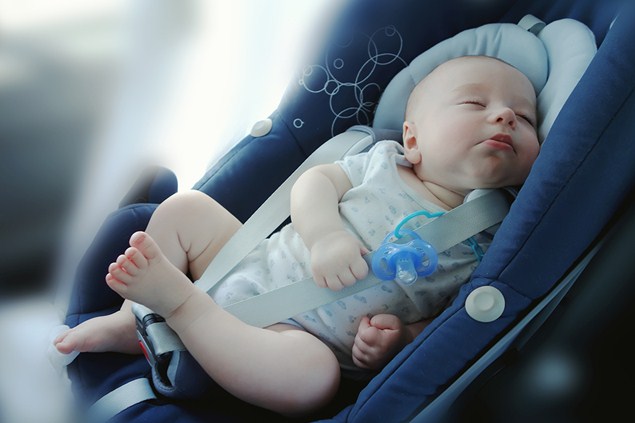What happens?
I blame the digital age for pushing us over the edge. There's no room in our brains for anything else. Too much noise. Too many "demands" for our attention. People can reach you anywhere at any time. Not healthy. Here's the bottom line.
- On average, 37 kids die every year from being left in a car.
- Most deaths occur in July and August, so we’re right in that period.
- Kids don’t stay babies forever.
- Once they can be advocates for themselves, they can get your attention.
- You need to appreciate that you’re in an intensely stressful time of life, so you have to up your game. DO NOT TRUST YOURSELF.
It's no mystery. We're clear on "why" this happens.
- When parents forget their kids in the car and walk away, it’s usually under “different circumstances”. This means that they’ve varied their routine somehow and their “habit memory” which is our “autopilot” is engaged.
- Habit memory is the result of repetition and the more frequently the habit is repeated, the stronger it is.
- Think automaticity. You don’t even have to think about how to spell your name unless you’ve had a head injury or your substance impaired.
- Neurons (brain cells) that fire together, wire together creating the "practice makes perfect" dynamic. As you know, habits are tough to overcome.
- Donald Hebb, Canadian psychologist in the 60’s observed this dynamic.
- Stress and sleep-deprivation set us up for “defaulting” to our habits.
- Sleep loss and stress compromises our “prospective memory”.
- Prospective memory involves planning and intending to do something. Makes sense, right?
- Executive functioning skills associated with monitoring behavior, planning and controlling basic daily tasks are at play here.
- Executive functioning skills take place in the area behind the forehead.
- Also, the hippocampus is involved.
- The hippocampus is usually thought of as being primarily involved in memory, but its got more jobs than that. It's involved in the decision-making process.
- The hippocampus forms, organizes, multi-tasks and stores new memories. So, if you've changed routines "just for today", this system falters.
- These systems are sensitive and fragile and when you’re not cranking on all cylinders, they can break down.
- What to do?
- As soon as you realize that your schedule is going to be different, stop what you’re doing and create an alarm or alert on your phone.
- Leave yourself a voice mail message.
- Email yourself.
- Text yourself.
- Put a note on the door for when you leave in the morning. Put notes in the car.
- Create a "lanyard" and hang around your neck.
- Make a fun hat with things hanging down.
- Put a rubber band on your wrist.
- Every time you process the alert, the alarm, the voice mail, the email, the text and the note, you have a better chance of overcoming the automaticity of habit memory.
- Increase the size of the team. Have grandma call, have grandpa call, have your friends call you to make sure you took baby to daycare and she's not in the back seat.
- Use any and all available technology. Waze, the free, downloadable app has a child reminder option in the General Settings...do it, do it now.
- Educate yourself as to what happens to children left in cars. This information will change your perception of “what” happens.
- Kids bodies heat up much faster than adults and their organs begin to shut down when their core temperature reaches 104 degrees.
- What that means is that on an 86-degree day which is not all that hot, it takes about 10 minutes for the car temperature to reach 105.
You think this won't happen to you? YOU'RE WRONG. We love you. You can't live with the consequences.
Claudia
Join me on Facebook at Dr. Claudia McCulloch.
At DrClaudia.net, click on the "Ask Me" button and send me a question.



